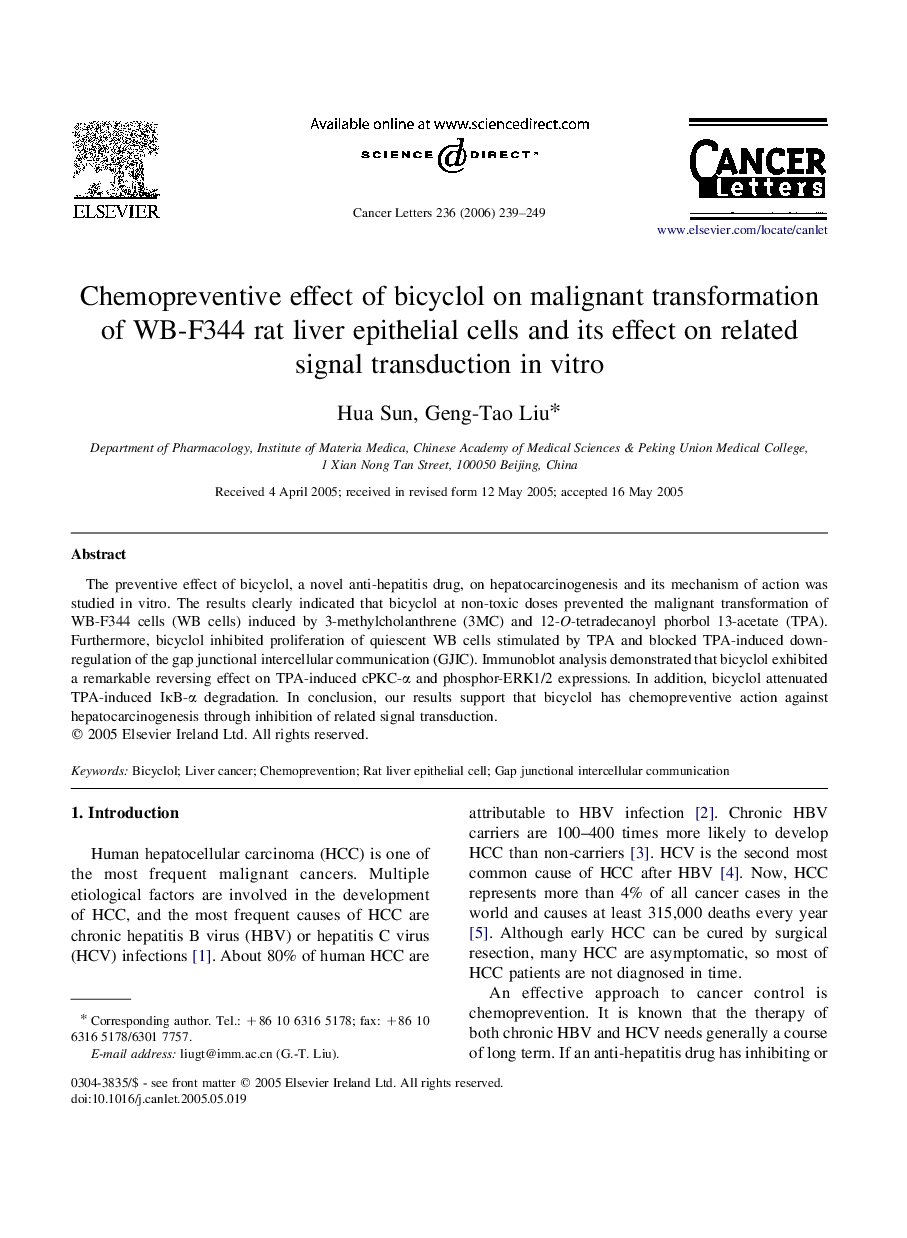| Article ID | Journal | Published Year | Pages | File Type |
|---|---|---|---|---|
| 2115825 | Cancer Letters | 2006 | 11 Pages |
The preventive effect of bicyclol, a novel anti-hepatitis drug, on hepatocarcinogenesis and its mechanism of action was studied in vitro. The results clearly indicated that bicyclol at non-toxic doses prevented the malignant transformation of WB-F344 cells (WB cells) induced by 3-methylcholanthrene (3MC) and 12-O-tetradecanoyl phorbol 13-acetate (TPA). Furthermore, bicyclol inhibited proliferation of quiescent WB cells stimulated by TPA and blocked TPA-induced down-regulation of the gap junctional intercellular communication (GJIC). Immunoblot analysis demonstrated that bicyclol exhibited a remarkable reversing effect on TPA-induced cPKC-α and phosphor-ERK1/2 expressions. In addition, bicyclol attenuated TPA-induced IκB-α degradation. In conclusion, our results support that bicyclol has chemopreventive action against hepatocarcinogenesis through inhibition of related signal transduction.
